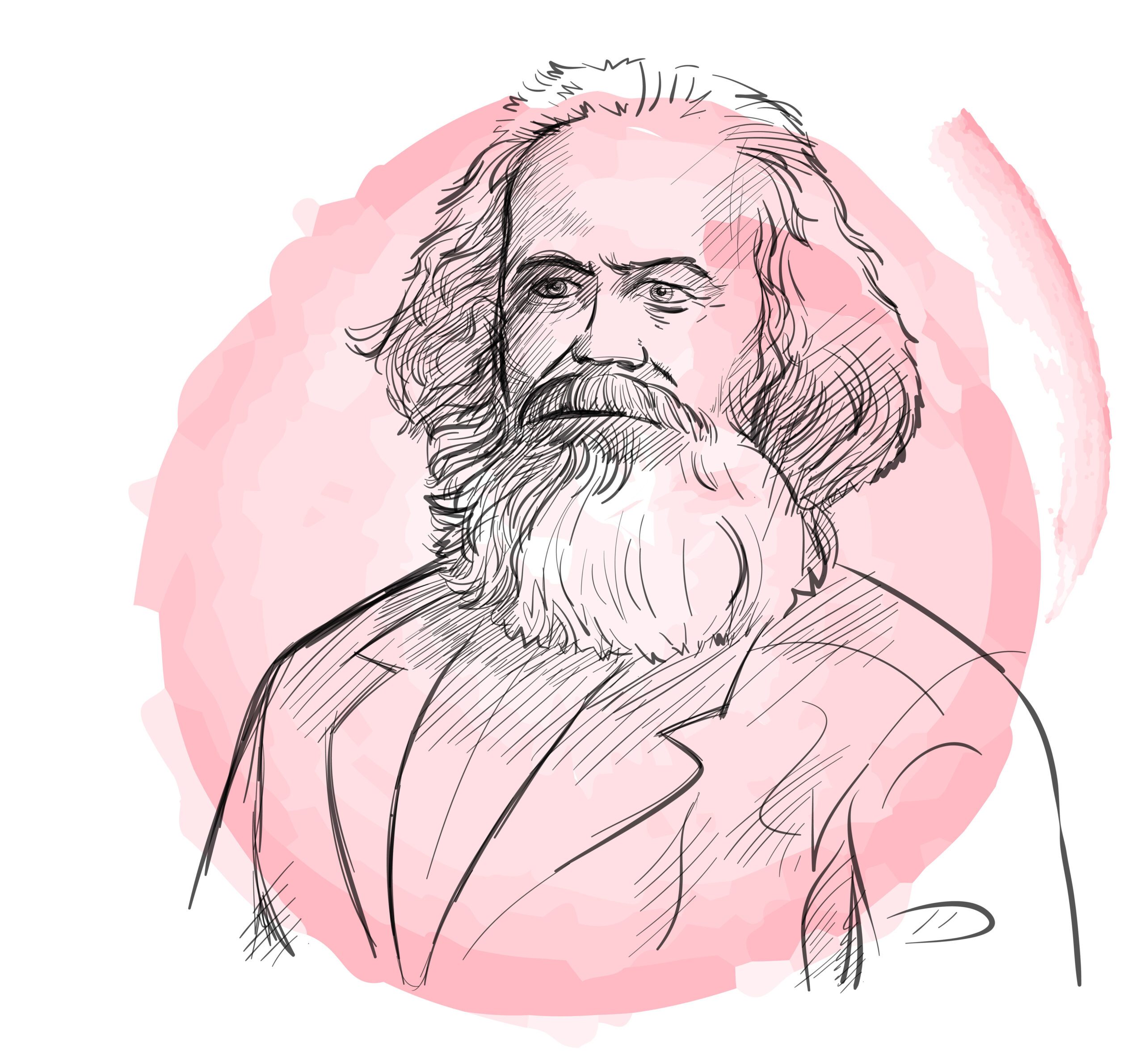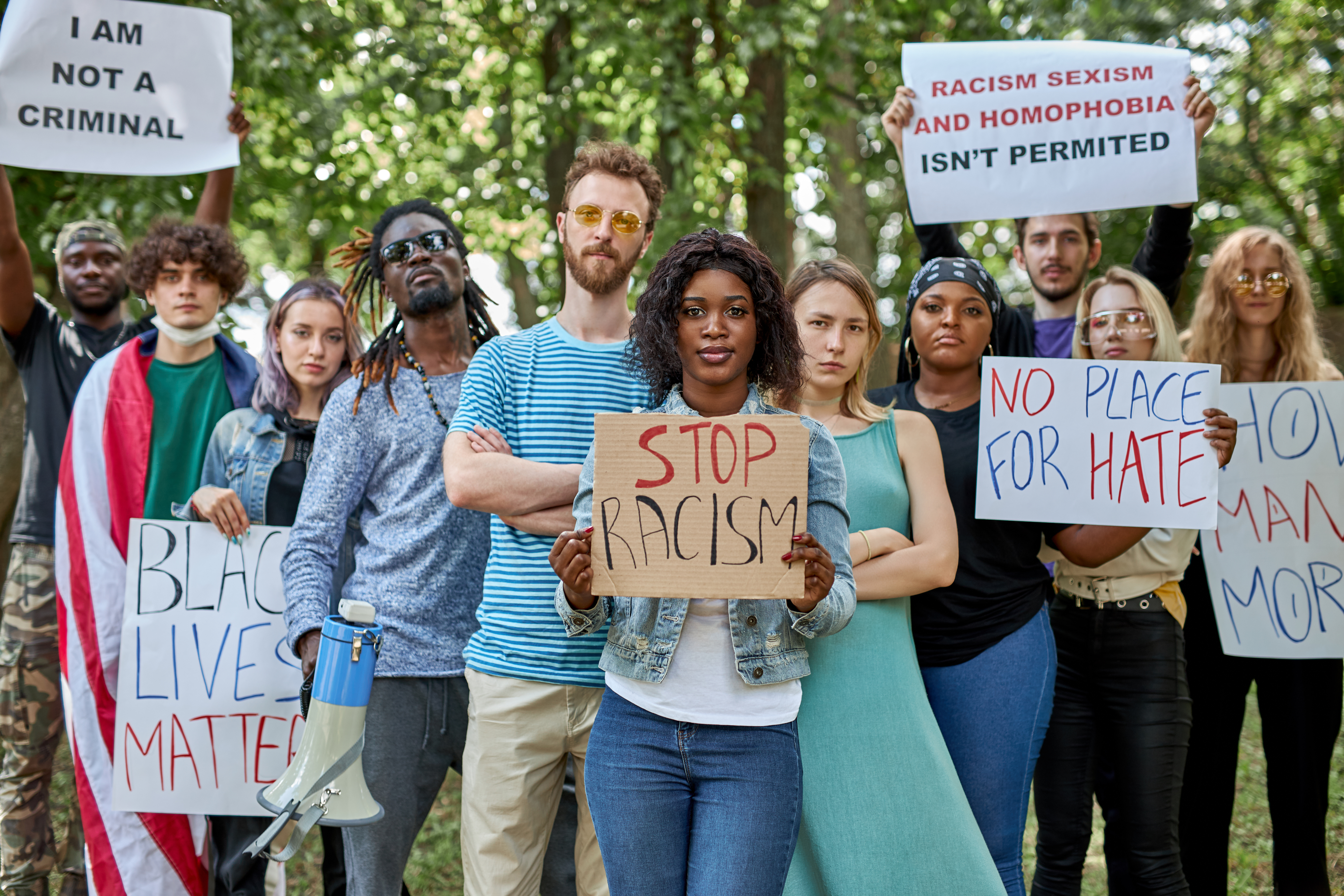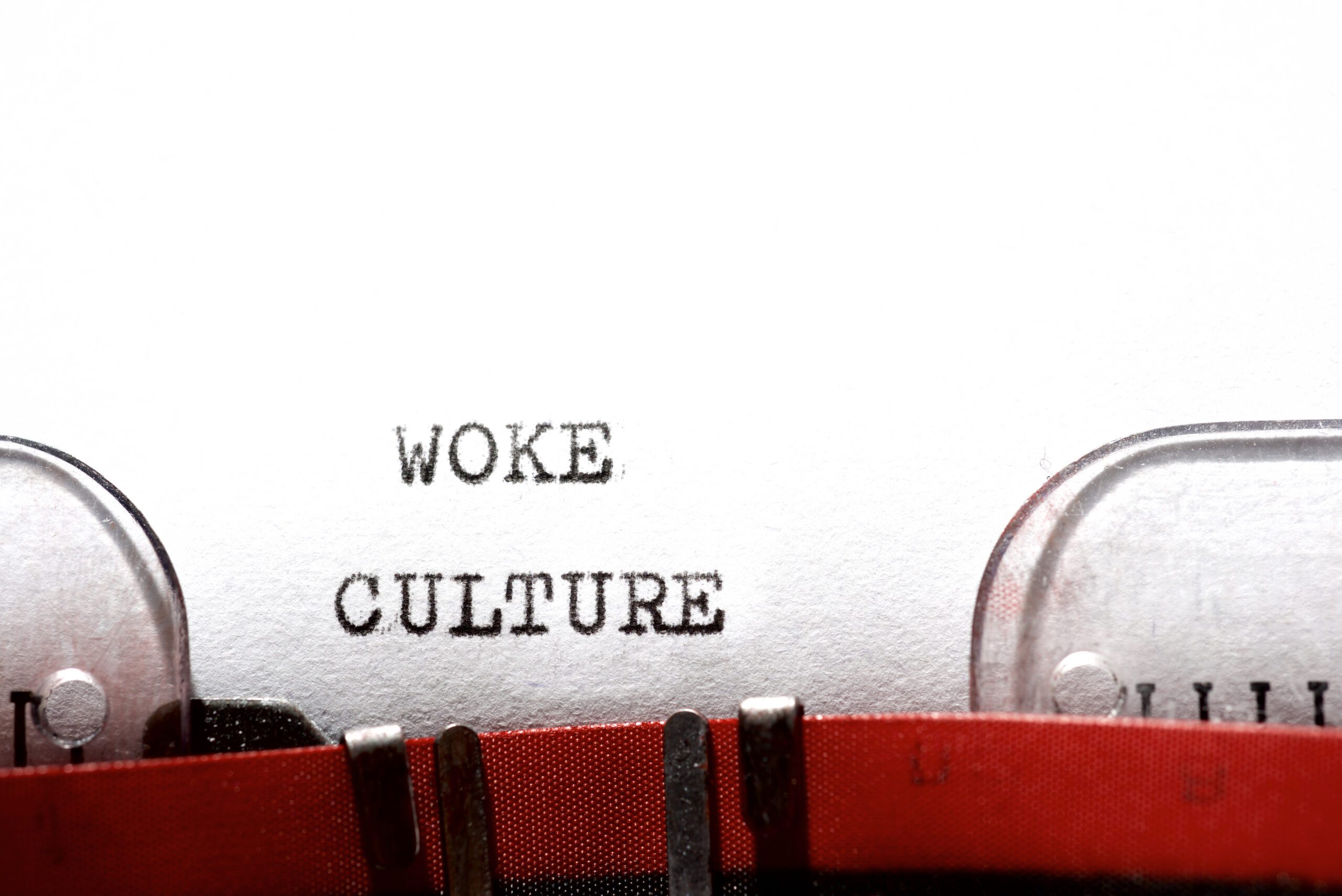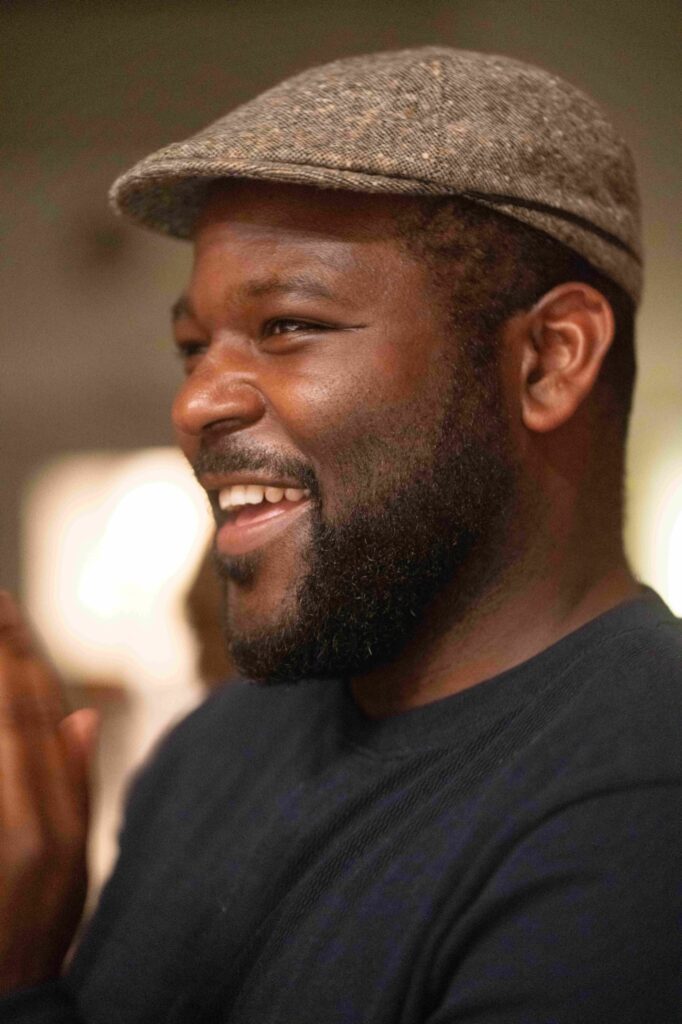The challenge for trade union organisations is to find a balance between defending the relevant interests of workers and considering new forms of activist engagement.

Social conscience or social conflict?
It’s capturing attention and stirring controversy. Over the last ten years or so, this new social movement, known as ‘wokeism,’ has been redefining the scope of activist commitment and raising new questions about our approach to social inequality. This article will help you understand this phenomenon objectively and identify its impact on society, trade unions, and the workforce in the 21st century.
Introduction
On 3 October 2024, dockers on the East Coast of the United States suspended their strike following the intervention of the Biden administration in fear of a major disruption to the country’s supplies. After a long period of notice and three days of strike action that brought dozens of American harbours to paralysis, the International Longshoremen’s Association thus obtained a 62% pay rise over six years for 47,000 workers. This ‘old-fashioned’ social conflict between workers and management is reminiscent of traditional trade union struggles. However, for about ten years, the social movements that attract attention and bring together the various institutions, including the unions, have moved away from this classic model.
Indeed, a new phenomenon has emerged, turning the landscape of activism upside down: the ‘woke’ movement. This anti-discrimination movement, which advocates increased social awareness to uncover inequalities, particularly within systems of power, has gained considerable momentum. Since its emergence in the early 2010s in the United States as a recognisable pattern of attitudes and claims, ‘wokeism’ has given rise to passionate and polarised debates across the Atlantic as well as in Europe.

“Wokeism”: the philosophical roots of a social movement
‘Wokeism’ is both recent in its expression and not very new in its ideas. This is probably one of the reasons for its success. How has it developed over time? To understand this phenomenon, we need to go back to the origins of critical thinking on social inequality:
- Karl Marx (1818-1883), a German philosopher and economist, lays the foundations for analysing relations of economic domination. His theory that economic position determines oppression and the relationship between the dominant and the dominated is fundamental to understanding ‘wokeism.’
- The Frankfurt School, a school of thought founded in 1923, significantly shifts the Marxist focus from economic to societal and cultural concerns. It develops critical theory, a neo-Marxist approach which analyses social and cultural structures. Its intellectuals, such as Theodor Adorno and Max Horkheimer, criticise mass culture and the culture industry as tools of domination. They are interested in how culture and ideology influence society rather than just economic factors. The Frankfurt School introduces the concept of ‘instrumental reason’, which explains how modern rationality itself can become an instrument of oppression. Their ideas deeply influence social and intellectual movements, in particular by challenging existing power structures and encouraging a critical analysis of society. This approach lays the foundations for many later critical movements, including ‘wokeism’.
3. Antonio Gramsci (1891-1937), an Italian philosopher and politician, develops the concept of cultural hegemony. He argues that the ruling class maintains its power not only by force but also by controlling cultural institutions. Gramsci argues that to achieve social change, collective consciousness must first be transformed to resist this control by the dominant class. He introduces the idea of the ‘war of position’, a strategy of gradual social change through cultural institutions, as opposed to the direct revolutionary “war of movement”. His ideas profoundly influenced various left-wing movements, emphasising the importance of culture and education in the political struggle. Gramsci’s concept of cultural hegemony has become central to many contemporary critical analyses, including the ‘woke’ movement. This explains why this movement focuses on the cultural practices of the dominant and the dominated rather than on the political and economic realities of the working classes.
4. Frantz Fanon (1925-1961), a psychiatrist and essayist from Martinique, introduces and develops the Gramscian idea of awareness from an anti-colonial and Marxist perspective. In his essay Black Skin, White Masks (1952), Fanon argues that racial distinction was established as a bourgeois superstructure to reinforce the oppression of colonised peoples. The first responsibility of the social struggle (as well as the cultural and economic struggle) is, therefore, to raise the consciousness of the masses—especially the oppressed ones—by getting them to understand the superstructure that explains their oppression, and thus giving them the essential means to overthrow it. This process of raising awareness becomes the spearhead of an anti-colonial revolutionary approach.
5. Herbert Marcuse (1898-1979), a German philosopher and sociologist associated with the Frankfurt School, developed a radical analysis of advanced industrial society. In One-Dimensional Man (1964), he argues that modern capitalist society creates false needs that integrate individuals into the existing system of production and consumption. Marcuse proposes the concept of the “Great Refusal,” a radical opposition to the established order. He became an influential figure in student movements and the New Left in the 1960s. His ideas on liberating repressed desires and criticising ‘repressive tolerance’ profoundly affected counter-culture movements. Marcuse’s influence can be seen in many aspects of ‘wokeism’, particularly in its critique of existing power structures and its call for a radical transformation of society.
6. Paulo Freire (1921-1997), a Brazilian educationalist, developed a concept aimed at constructing education as a process of self-awareness and liberation. In Pedagogy of the Oppressed (1968), he elaborated that education should not be a tool for cultural domination but a means for learners to understand their daily lives and become aware of the reasons for their oppressive situation. Freire takes up the concept of awareness proposed by Frantz Fanon and develops the idea of education as a process of awakening and liberation. Awareness of oppression is then presented as a genuine stage in individual and social transformation, followed by permanent cultural and social action with a view to emancipation (which can be described as militancy in the broad sense of the term). This emancipation then pursues a goal of profound transformation of society, well beyond work and consumption, in the direction of comprehensive equality. As he was also a liberation theologian, his activism, particularly as an educational consultant to the World Council of Churches in Geneva, enabled him to spread this idea to Catholic and Protestant trade union movements. Trade unions and all militant movements can, therefore, participate in this pursuit of emancipation by including its cultural and societal dimensions.
7. Henry Giroux (born 1943), an American theorist, developed critical pedagogy based on the work of Freire. He creates a theory and methodology of critical pedagogy in the United States, linking it with the achievements of critical theory (developed by Marcuse and the Frankfurt School) and critical studies in the social sciences, which look at the objectification and marginalisation of categories of the population deemed to be discriminated (e.g., Women’s Studies, Black Studies, Queer Studies). From the 1970s-1980s onwards, educational programs (including militant training) were disseminated on American university campuses and in specific emancipation movements such as the Black Panthers and the Gay Liberation Movement. This thinking and these programmes then spread to the teaching of social sciences and education as well as to social and political action, in particular to the Diversity, Equity and Inclusion (DEI) policies of private and public companies, and more recently to education in general (compulsory and university).
8. The concept of awareness with a view to activism is found in militant anti-racist movements, particularly Black Lives Matter, which efficiently invests in the viral means of communication that are social networks. More specifically, the idea of being ‘aware’ is referred to in Afro-American slang as ‘to be woke,’ which means ‘to be awake, alert.’ The term has become a meme, hence ‘woke thinking’ or ‘wokeism.’ It was popularised by the inter-ethnic justice movement, particularly by the Black Lives Matter organisation around the significant protests in the United States in 2013, notably through the song ‘Master Teacher’ by Erykah Badu, whose refrain “I Stay Woke” has become an epitome. As a result, the term ‘woke’ has become synonymous with social consciousness.
How ‘wokeism’ is impacting the social and political landscape
A new form of activism
‘Wokeism’ differs from traditional social movements in its cross-cutting, intersectional approach to discrimination. Rather than focusing on a single cause, it encompasses a wide range of struggles, from anti-racism to feminism to LGBTQ+ rights. This holistic view of social struggles is at the very heart of the movement.
The theses of ‘wokeism’ aim for global emancipation, seeking to identify and combat the common characteristics shared by different forms of domination. The movement’s demands are varied and touch on many aspects of society. They include the use of inclusive language, particularly about gender, critical questioning of gender norms, and the condemnation of phenomena such as ‘white privilege,’ ‘rape culture’ and ‘systemic racism.’
The movement is also committed to promoting ‘decolonial’ thinking and raising awareness of individuals’ ‘racialisation.’ It addresses issues of ‘toxic masculinity’ and supports ‘cancel culture’ as a means of social empowerment. In short, ‘wokeism’ seeks to address inequality and discrimination in an interconnected way, reflecting the complexity of contemporary social dynamics. This cross-disciplinary approach aims to identify the common features between different forms of domination in order to combat them more effectively.
These arguments form part of a global narrative centred on social justice and the fight against systemic discrimination. This perspective relies on the premise that we are all involved, consciously or unconsciously, in invisible systems of injustice that must be actively combated and overturned. ‘Woke’ thinking emphasises the need for constant awareness of these injustices, particularly within structures of power (such as companies or public services) and underlines our collective responsibility to act for a fairer society. This movement advocates a commitment to achieving greater justice, characterised by an unrelenting quest to identify injustices with a view to countering them. The ultimate aim is to gradually conform to a specific conception of what a more equitable life should be.


The mixed reception of ‘wokeism’
Over the past decade, the ‘woke’ phenomenon has grown in popularity and interest, both online and offline, in North America, Australia, New Zealand and Europe. However, it is also highly polarised as a system of ideas and a social movement. On the one hand, its supporters see it as an indispensable tool for combating systemic injustices. On the other, its detractors criticise what they perceive as a form of ideological extremism. A few facts and figures illustrate this:
- The use of the term ‘woke’ on Twitter has impressively increased, from a few hundred mentions in 2014 to over 100,000 mentions per day in 2020. This explosion in using the term on social networks reflects the growing interest in the concept and the debates it generates.
- In France, an IFOP study in 2021 revealed that only 14% of French people knew what ‘woke thinking’ was. Although this figure is relatively low, it indicates significant penetration of the concept in French society, especially given its Anglo-Saxon origins. However, adoption of the above-mentioned specific ideas remains very much in the minority among the French population (11% to 19%, depending on the subject), even though they often win over the majority of French people who see what these ideas are specifically about.
- In the UK, a survey conducted by YouGov in July 2022 showed that 57% of Britons knew what the term ‘woke’ meant. Yet 73% of those who used the term did so in a derogatory sense. These figures highlight the polarising nature of the phenomenon, even in a European country.
- At the end of 2022, the word ‘wokisme’ was added to the French dictionary Le Robert, demonstrating its integration into everyday language and its growing cultural importance.
- In the United States, the number of DEI-related positions (a field predominantly defined by ‘woke’ thinking) in large companies has doubled in six years, rising from nearly 6,000 positions in 2016 to almost 13,000 in 2022. This number has been declining slightly since then. Similarly, around half of the 500 largest listed companies (S&P 500) now link executive pay to diversity performance targets, although this percentage has fallen by 5 points in the last two years.
These data illustrate the extent of interest in the ‘woke’ phenomenon, which has spread from the United States to Europe. Although its interpretation and reception vary considerably, the concept has undeniably penetrated public discourse and civic debates. Interest in ‘wokeism’ is evident not only online, through social networking and internet discussions, but also offline, as evidenced by opinion polls and its inclusion in dictionaries. This growing popularity has also given rise to various reactions, from enthusiastic support to strong opposition, reflecting current social and political divisions.
Wokeism’ as a response to a Meaning Crisis
An existential quest
Why is ‘wokeism’ so fascinating? The emergence and captivating power of the ‘woke’ phenomenon reflects a profound existential quest. Unlike the militancy of political achievement that characterises classic labour unionism, ‘wokeism’ finds its strength in a narrative that offers a genuine conception of the world, responding to existential issues and a widespread crisis of meaning.
As explained above, ‘woke’ thinking emphasises the need to recognise our own privileges and biases, considering that our position in the social system often distorts our perception of reality. ‘Wokeism’ encourages us to look beyond the simple activism of political achievement—as the dockers’ strike was—where denouncing injustice and fighting for change are seen as moral imperatives. However, this focus on condemnation without a mechanism for atonement can lead to a worldview in which the roles of oppressor and oppressed are seen as irrevocable, making reconciliation and atonement difficult.
This narrative is particularly successful in the context of existential emptiness. John Vervaeke, a professor of cognitive psychology at the University of Toronto, talks of a ‘meaning crisis’ in our modern societies. In his view, this crisis manifests itself in a growing sense of disconnection, alienation and loss of direction in life. ‘Wokeism,’ with its promise of enlightenment and social justice, can be seen as an attempt to respond to this deep need for meaning and connection. Vervaeke suggests that social movements like ‘wokeism’ offer a form of ‘participatory meaning,’ where individuals find purpose and identity through their engagement with a collective cause.
Patrisse Cullors, co-founder of Black Lives Matter, expresses this spiritual dimension: “For me, seeking spirituality had a lot to do with trying to seek understanding about my conditions—how these conditions shape me in my everyday life and how do I understand them as part of a larger fight, a fight for my life.”

A quasi-religious dimension?
Can ‘wokeism’ be considered a form of secular religion? Some observers, such as the historian Tom Holland, have highlighted the similarities between ‘wokeism’ and certain forms of spirituality. In his book Dominion (2019), Holland shows how the foundations of ‘wokeism’ as a struggle for justice are to be found in Christianity and reproduce specific patterns of that worldview. More controversially, the analysis of the ‘woke’ movement by European authors, particularly in France (Jean-François Braunstein, Anne Toulouse), has tended to compare this movement globally and derogatorily to a form of atonement religion, a religion of elites in search of moral superiority or even a new version of puritanism.
However, this comparison with religion has its limits. Frédéric Dejean, a researcher in religious studies in Montreal (Quebec), warns against this. He believes that comparing ‘wokeism’ to a religion from the outset is intellectually lazy and relieves the observer of the need to approach the phenomenon with finesse and empiricism. This reduction can also play a rhetorical role, where one can use the comparison with religion to denounce and condemn rather than to inform or explain. A one-to-one comparison would, therefore, be misleading.

‘Wokeism’ and workforce: a challenge for trade unionism?
A tension between tradition and modernity
The ‘woke’ movement raises the question of the future of labour rights representation. Is there a tension between traditional trade union work and the struggles pursued by the ‘woke’ thinking? Doesn’t this new activist paradigm risk overshadowing fundamental issues linked to work in the contemporary era, such as advanced automation assisted by artificial intelligence?
Advanced automation: a crucial challenge for the workforce in the 21st century
Advanced automation and artificial intelligence represent a significant challenge for the workforce in the 21st century, affecting a wide range of sectors, from manual trades to intellectual professions, from the private sector to the public sector and services. According to a report by the McKinsey Global Institute, up to 800 million jobs could be automated by 2030. This radical transformation of the labour market raises crucial questions about the future of employment, lifelong training, and worker protection. These issues should be of prime interest to trade union movements.
The dockers’ strike of 2024 is a perfect illustration of the importance of these issues. One of the foremost litigation points was precisely the issue of automation in dockyards. The dockers feared that introducing new technologies would threaten their jobs and working conditions. This struggle highlights the continuing relevance of the ‘old-style’ trade unionism in the face of contemporary challenges.
Indeed, with its ability to mobilise workers and negotiate collectively, traditional trade unionism remains a powerful tool for defending employees’ interests in the face of these technological transformations. The dockers’ strike led to a significant pay rise of 62% over six years, demonstrating the effectiveness of collective union action.
The risk of being left behind
Is the rise in popularity of populist movements, both left and right, among the working classes on both sides of the Atlantic not a sign that the more established structures, including trade unions and political parties, are abandoning the fight?
Populist movements are increasingly filling the vacuum left by traditional institutions. In the United States, for example, blue-collar workers’ support for Donald Trump in the 2016 and 2020 elections can be interpreted as a reaction to what they perceive as the political and union elites’ abandonment of their economic concerns.
In Europe, we observe a similar trend with the rise of right-wing populist parties, which capitalise on the economic discontent of the working classes or the middle classes for fear of being downgraded. In France, for example, the far-right party Rassemblement national has managed to attract a significant share of the traditionally left-leaning working-class electorate.
These changes highlight a crucial challenge for unions and traditional political parties. They must now reconcile two imperatives: remain attentive to workers’ economic concerns, particularly in the face of technological disruption, while integrating the issues of equity and social justice raised by the ‘woke’ movement.
In this context, a new political discourse seems to be emerging, criticising laissez-faire capitalism devoid of an ethical framework and pointing out its destructive effects on the working classes. The choice of J. D. Vance, a senator and a writer from the white American underclass, as Donald Trump’s running mate for the vice presidency of the United States, illustrates this trend. It reveals a growing sensitivity, even within the traditionally pro-business American right, to the social consequences of uncontrolled capitalism.
This development reflects an awareness of the harmful effects of transformations in the labour market, largely driven by technological advances. These changes are causing job losses, deterioration in mental health, and a crisis of meaning among many workers. The extent of these impacts is now being felt on the political scene, highlighting the urgency of a moral framework focused on the preservation of people, families, and communities, social cohesion, and the environment to regulate business practices and preserve the social fabric.
Today, as in the past, capitalism’s evolution continues to have a profound impact on the economy and the daily lives of workers. While this system offers opportunities to undertake, innovate, and create wealth, it also generates dehumanising procedures and manipulations aimed at gaining acceptance for some of its most harmful effects.
Even more disturbing, some of the ideas and the claims of ‘woke’ thinking have been twisted by public or private economic and managerial actors, particularly through corporate social responsibility or DEI policies. Paradoxically, this twisting of ‘woke’ ideas often has the effect of reinforcing the status quo rather than actually improving the conditions of workers or the environment.
This phenomenon has given rise to what French historian of production processes Audrey Millet calls a “market of virtue,” where companies use a front of ethical imagery to attract or retain consumers or users without promoting genuine social values. Faced with these excesses, it seems crucial to create a solid ethical framework around capitalism, capable of countering its excesses while preserving its positive aspects.
The growing popularity of ‘woke’ thinking risks diverting unions’ and traditional political parties’ attention from workers’ actual economic concerns. While ‘wokeism’ focuses on the admittedly essential questions of identity and discrimination, crucial issues such as advanced automation, the precariousness of employment, the loss of meaning, or the destruction of labour rights could be neglected.
Challenges within public institutions
Finally, the backlash against the development of ‘woke’ notions within public institutions in the United States in recent years deserves our attention. Their implementation through Diversity, Equity, and Inclusion practices in the public sectors of education and youth, as well as higher education (schools, universities, libraries and training centres), has generated a wave of protests and disciplinary measures. Some stakeholders, including users of public services, civil servants and elected officials, have even sought to reduce funding for these institutions.
These challenges are multiple and complex. They include censorship and self-censorship in education and advanced education, often linked to objections of opinion or conscience to certain ‘woke’ ideas. Added to this are ethical questions about the unbiased use of artificial intelligence in research and training and debates about freedom of personal expression in the professional environment.
Academic freedom, with its rights and responsibilities, is also at the heart of these controversies. Finally, the (sometimes abusive) use of codes of civility or conduct in the workplace raises questions about the limits of freedom of expression in the context of public institutions. These issues reflect the growing tensions between the new social sensibilities carried by ‘wokeism’ and the academic and professional traditions established in the public sector.
Conclusion:
Lessons for trade unionism and civic engagement
Faced with the emergence of ‘wokeism,’ trade unions are called upon to reinvent themselves. How can traditional trade union actions be reconciled with the existential needs of our advanced modernity? The challenge for trade union organisations is to find a balance between defending the relevant interests of workers and considering new forms of activist engagement.
Ultimately, the ‘woke’ phenomenon invites us to rethink our modes of collective action and our conception of social justice. Whether we approve of it or criticise it, it is undeniable that this movement has profoundly marked the contemporary activist landscape, opening new perspectives for civic engagement and the fight against discrimination. Is ‘wokeism’ an adequate response to the challenges of our time? Or is it just a step in the constant evolution of social movements? Only time will tell, but one thing is sure: it has already changed the way we think and talk about social injustices.
Sources :
(No name), (19 September 2024). “America is becoming less ‘woke’”. The Economist, online: https://www.economist.com/briefing/2024/09/19/america-is-becoming-less-woke.
Bossaller, Jenny and Toni Samek (2023). “The Contested Nature of the Public in Policy: Implications for Educators”. Proceedings of the Association for Library and Information Science Education Annual Conference 2023, DOI: https://doi.org/10.21900/j.alise.2023.1360.
Cullors, Patrisse (24 June 2015), quoted by par Hebah G. Farrag, “The Role of Spirit in the #BlackLivesMatter Movement: A Conversation with Activist and Artist Patrisse Cullors”. Religion Dispatches, online: https://religiondispatches.org/the-role-of-spirit-in-the-blacklivesmatter-movement-a-conversation-with-activist-and-artist-patrisse-cullors/.
Dejean, Frédéric (8 novembre 2022). “L’analogie religieuse dans la critique du wokisme”. La Vie des Idées, online: https://laviedesidees.fr/L-analogie-religieuse-dans-la-critique-du-Wokisme.html.
Duncan, Ian, David J. Lynch and Lauren Kaori Gurley (3 October 2024). “Dockworkers union suspends strike; ports reopen on East and Gulf coasts”. The Washington Post.
Eatwell, R., & Goodwin, M. (2018). National Populism: The Revolt Against Liberal Democracy. Penguin UK.
Fourquet, Jérôme and Gautier Jardon (February 2021). « Notoriété et adhésion aux thèses de la pensée “woke” parmi les Français ». A poll available on Groupe IFOP’s website: https://www.ifop.com/wp-content/uploads/2021/03/117936-R%C3%A9sultats.pdf.
Long, Heather (1 October 2024). “Opinion: The real reason 47,000 dockworkers are on strike”. The Washington Post.
McKinsey Global Institute (2017). Jobs Lost, Jobs Gained: Workforce Transitions in a Time of Automation.
Millet, Audrey (2023). Woke washing. Capitalisme, consumérisme, opportunisme. Paris : Les Pérégrines, pp. 25–26, 59–60, 179.
Pew Research Center (2018). The 2018 Midterm Vote: Divisions by Race, Gender, Education.
Smith, Matthew (26 septembre 2022). “Most Britons now know what ‘woke’ is”. YouGov UK, online: https://yougov.co.uk/politics/articles/43645-most-britons-now-know-what-woke.
Vervaeke, John (2019). “Awakening from the Meaning Crisis”. Series available on YouTube.

Christel Lamère NGNAMBI
About The Author
Christel Lamère Ngnambi is an author, speaker and coach based in Brussels (Belgium). He is a consultant in strategic communication and political communication.